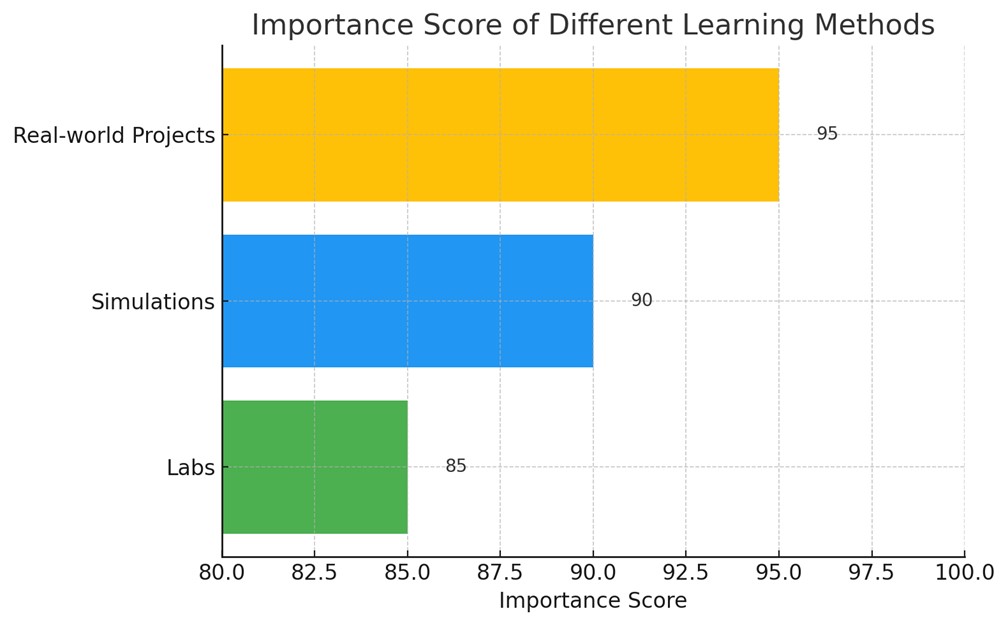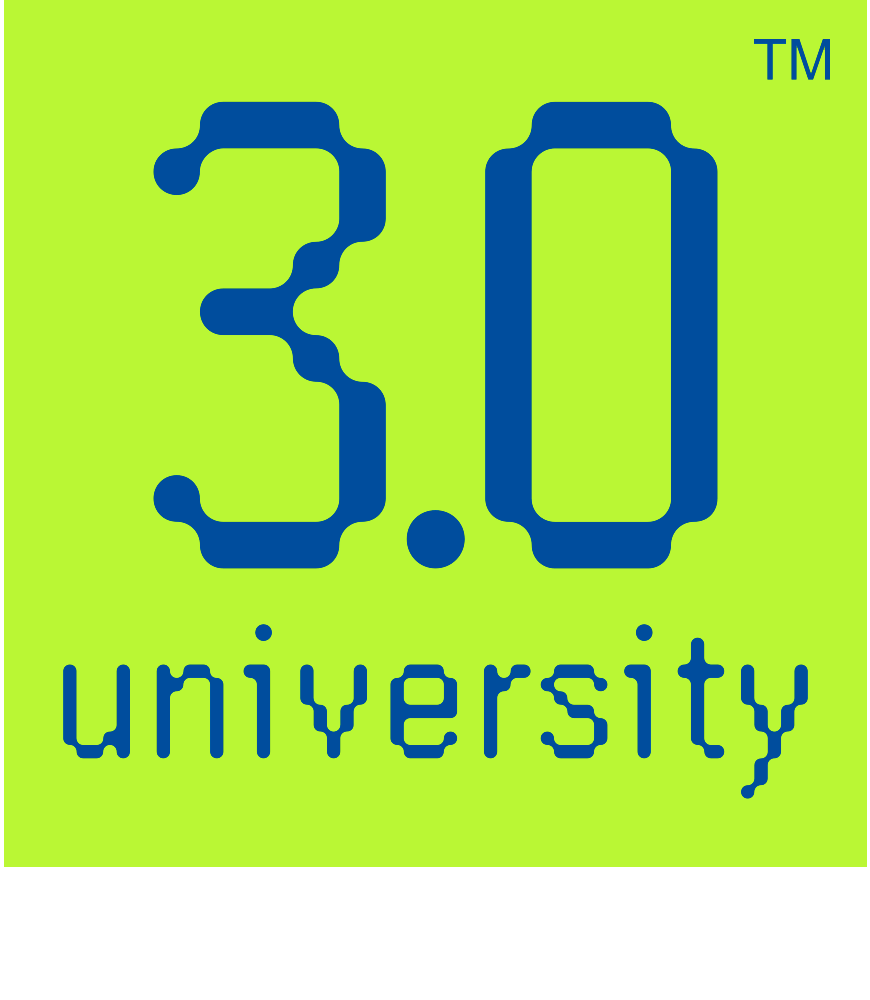
How to Learn Ethical Hacking without Experience in 2025?
- Posted by 3.0 University
- Categories Ethical Hacking
- Date January 27, 2025
- Comments 0 comment
How Students Can Learn Ethical Hacking Without Prior Experience?
In today’s tech-focused world, the need for cybersecurity workers is very clear, offering a special chance for students who want to learn ethical hacking. Many think that you need prior experience or high-level tech degrees to start in this area, but beginners can actually gain the required skills through organized learning paths.
Hence, ethical hacking for beginners is an amply important aspect.
Key to this process is a strong grasp of basic ideas, which easy-to-find educational tools, such as online classes and local workshops can enhance.
Projects that mimic actual situations can also provide hands-on experience, enabling students to develop skills such as incident response and identifying system weaknesses.
For example, the main steps to becoming a certified ethical hacker, covering what education you need and the related certificates.
This illustration not only clarifies the qualifications needed but also motivates future hackers, showing that with hard work, anyone can step into this important field without any prior experience.
Overview of ethical hacking and its importance in cybersecurity
In the world of cybersecurity, ethical hacking is significant for protecting digital spaces from bad actions.
This applied, practical and handy way involves experts who deftly look at systems, networks, and apps to find weak or vulnerable spots, enabling to build defences against future cyber threats.
Ethical hackers, also known as white-hat hackers, use several other tools and techniques akin to those used by numerous bad hackers, but they do so with permission and consent from the organization and within legal limits.
Their work is all the time more critical due to the increase in cyberattacks, which not only threaten sensitive data but also damage public confidence in technology.
For students choosing this career path, it is important to know the qualifications and jobs associated with ethical hacking.
A visual representation of the educational path to becoming an ethical hacker, which outlines the necessary degrees and certifications clearly highlights the organized learning that can help students succeed in this crucial area of cybersecurity.
Resources for Learning Ethical Hacking
Getting good at ethical hacking requires many learning methods that mix theory, practice, and ongoing education.
For starters, beginners can benefit from organized online courses that go over different topics like network security, penetration testing, and vulnerability assessment.
These courses usually have practical exercises that let students use their knowledge in a safe setting. In addition, detailed guides and tutorials can provide clear steps to learn important skills, and joining forums can help with group learning.
As shown in a professional resume example for a starting Cyber Security Analyst, having real-world experience and relevant certifications, such as Certified Ethical Hacker (CEH), is essential to gain respect in this field.
To deal with the dangers from advanced nation-state-sponsored hackers, companies need to use a proactive, ongoing, and layered approach to cybersecurity.
This highlights the need for a strong learning framework to give students the skills they need, like those shown in [citeX].
Online courses and platforms that cater to beginners
In the field of ethical hacking, many online courses and platforms have come up to help beginners learn, greatly making this important skill more available.
These classes often include interactive parts like hands-on labs and community forums, which improve understanding and also create a teamwork atmosphere.
For example, platforms such as Coursera and Udemy provide organized programs made for beginners, helping them to learn basic ideas without any previous experience.
The step-by-step curriculum of these courses allows participants to gradually expand their knowledge.
As students go through these organized paths, they often realize they have gained skills that are important for starting a career in cybersecurity.
The real-world use of what they learn in these courses shows up in job settings, as seen in [insert source], which shows a resume that points out key certifications and skills directly linked to the training offered by these educational platforms.
Platform | Course Name | Duration (Weeks) | Cost | Level |
Coursera | Introduction to Cyber Security | 4 | $49/month | Beginner |
edX | Cybersecurity Fundamentals | 6 | Free (Certificate $199) | Beginner |
Udemy | Learn Ethical Hacking From Scratch | 20 | $11.99 (discounted) | Beginner |
Pluralsight | Ethical Hacking: The Complete Beginner’s Guide | 3 | $29/month | Beginner |
Khan Academy | Intro to Cryptography | 5 | Free | Beginner |
Online Ethical Hacking Certification by 3.0 University
Join the online Ethical Hacking Certification Program by 3.0 University, designed to empower you with advanced cybersecurity skills.
Learn from industry experts and become a certified ethical hacker with hands-on training and assured internship opportunities. Enroll now to safeguard the digital world!
How Students Can Learn Ethical Hacking Without Prior Experience?
In today’s tech-focused world, the need for cybersecurity workers is very clear, offering a special chance for students who want to learn ethical hacking.
Many think that you need prior experience or high-level tech degrees to start in this area, but beginners can gain the required skills through organized learning paths.
Key to this process is a strong grasp of basic ideas, which easy-to-find educational tools, such as online classes and local workshops can enhance.
Projects that mimic actual situations can also provide hands-on experience, enabling students to develop skills such as incident response and identifying system weaknesses.
For example, the table shows the main steps to becoming a certified ethical hacker, covering what education you need and the related certificates.
This illustration not only clarifies the qualifications needed but also motivates future hackers, showing that with hard work, anyone can step into this important field without any prior experience.

The chart illustrates the importance scores assigned to various learning methods, including Labs, Simulations, and Real-world Projects, with Real-world Projects receiving the highest score of 95, followed by Simulations at 90, and Labs at 85.
This visualization provides a clear comparison of the effectiveness of these learning methods.
Conclusion
In the digital world today, becoming an ethical hacker is possible even for people with no previous experience, highlighting the need for basic knowledge and practice.
Students looking to enter this field can use online courses, tutorials, and labs to gain important skills in cybersecurity.
Additionally, getting certifications like Certified Ethical Hacker (CEH) and CompTIA Cybersecurity Analyst (CySA+) shows knowledge and improves a professional resume, which is useful in a tough job market.
The whole picture of a cybersecurity career can be seen through this, showing what an entry-level cybersecurity analyst needs and stressing the mix of hands-on experience and training.
By working together with others, as shown in students, they can learn more through interactions and real-life applications, building key teamwork and communication skills.
In the end, this path to ethical hacking gives students the tools to tackle real cybersecurity problems effectively.
Summary of key points and encouragement for students to pursue ethical hacking.
In a time when cyber threats are more complex, the job of ethical hackers is crucial and also quite rewarding. For students looking into cybersecurity, studying ethical hacking offers a chance to develop a range of skills that are useful in the job market and have a positive impact.
Those who start this path can look forward to gaining important experiences and certifications that increase their chances of getting hired, like the Certified Ethical Hacker (CEH).
Additionally, getting hands-on training and working on group projects gives students the technical skills needed to handle complicated security situations.
The ever-changing nature of this field, pointed out by teamwork examples in, further highlights the need for cooperation and clear communication.
Therefore, students are urged to take advantage of these educational experiences, as they will not only aid their own career growth but also help create a safer digital environment.
Certified AI-Powered Ethical Hacker Program by 3.0 University
Enroll in 3.0 University Certified Ethical Hacker Program and unlock advanced cybersecurity skills.
Learn from top industry experts, gain practical experience, and secure internship opportunities to jumpstart your career. Take the first step toward becoming a certified ethical hacker today!
You may also like

How to Prepare for the Certified Ethical Hacker Exam?

AI-Powered Ethical Hacking in Critical Infrastructure Protection

